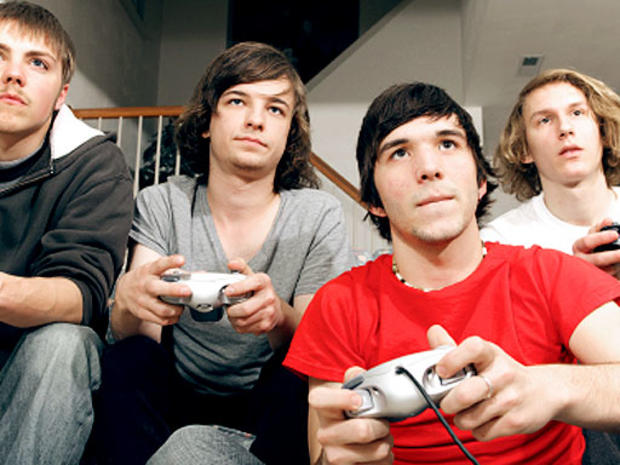Playing games being eyed in medical treatments
(CBS News) Gaming isn't just for fun - it might help save lives.
Woolley Pau Gyro, a U.K.-based integrated communications company, is attempting to show just how much gaming can help revolutionize the pharmaceutical industry.
"Gaming works because you can kind of forget the fact that you are learning for a moment," Christian Dawson, strategic director for Woolley Pau Gyro, explained to HealthPop. "It enables you to bypass your cynicism program, and at the end of it you realize you actually learn something."
Using games for other purposes than pleasure have existed for quite some time, Dawson said. For years, advertisers used "games,: creating cryptic ads that consumers had to solve. The reward came when a person was able to figure out what the ad meant, making the person feel clever. Now pharmaceutical companies are combining that technique with digital technology to create games.
While Woolley Pau Gyro can't completely disclose what they're working on, they said that many pharmaceutical companies have seen practical and positive outcomes in using digital games to help people adhere to medication, in educating people about their conditions and in enlisting crowdsourced help from people to help solve a medical problem.
For example, many doctors have problems keeping patients on their cardiovascular disease medication because of side effects that often make them feel ill, said Ed Shorthose, managing director at Woolley Pau Gyro. "They're going to stop taking it," he said. "You need to find another way to motivate them."
And, that's exactly what gaming does. The game gives people a small reward through earning points and allows people to socialize, chat and compare notes with other drug-takers, Dawson said. Dawson believes that people are innately competitive and have a need to compare themselves with others. Gaming's ability to allow people to boast through badges or statuses offers a reward that is often more tangible than accepting that your medication can make you feel better.
"Just by improving adherence in your outreach product therapy, just improving it by 5 percent, it has a massive impact on the outcomes on your patients," Dawson stated.
Studies have already shown that gaming has also proven effective in non-pharmaceutical treatments. Recently published research in BMJ showed that a game was as effective at treating teens with depression as face-to-face counseling, which may provide a cheaper and more convenient way for depressed individuals to seek help.
Researchers at the University of Auckland, New Zealand tested 187 subjects between the ages of 12 to 19 who were looking for help for their mild to moderate depression. All had been recommended for help by their primary healthcare clinicians.
Half of the group (93 subjects) were asked to attend typical in-person therapy sessions. The other half (94 subjects) were given the SPARX interactive 3D fantasy game to play over four to seven weeks. In the gameplay, the player goes through seven levels or modules in order to help balance the world and get rid of the GNATs (Gloomy Negative Automatic Thoughts). Each module also taught the teens real-world ways that they could deal with their anxiety and depression. Doctors then followed up with the subjects for three months.
At least one-third of the patients who played the SPARX game saw a reduction in their depression and anxiety symptoms. More people were also deemed completely recovered in the SPARX group - 44 percent of those who had completed at least four modules - compared with the 26 percent who had undergone the full face-to-face counseling. Ninety-five percent of the SPARX players who filled out the final survery said they thought it would appeal to teenagers, and 81 percent of them said they would recommend it to their friends. However, teens were equally pleased with the in-person treatment.
Another game, the "Didget" monitor by German drugmaker Bayer, has helped kids with juvenile diabetes keep track of their blood sugar level, Reuters reported. One of the games in the system called "Knock 'Em Downs" can be played on a Nintendo DS. It gives the kids a reward for regularly inputting their blood information by adding points and other features.
"It turned something she was really quite fearful about into something that could be a bit of fun," one child's father Richard Howarth told Reuters of his daughter Eleanor.
Woolley Pau Gyro said that while many people are using gamification because it's the new trend, they know that there are potential benefits that could really make this semi-new technique a gamechanger.
"Basically you are taking something that you want to get people to do and turning that into a game," Dawson said. "Rather than making it a dull and boring exercise - saying 'Please do this because its good for you' - you tell them, 'Here are the rules of the game and if you do it you get some kind of reward.'"

